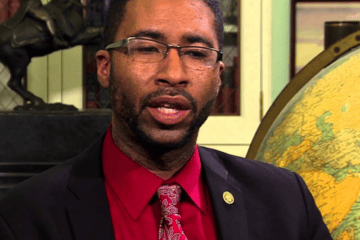By Támara Hill, MS, NCC, CCTP, LPC
Discussing a loved one’s failing physical and mental health is a challenge for many. As a child and adolescent trauma therapist, many families come to me for help in discussing a loved one’s declining health. The reality of a loved one losing their capacity to function can be traumatizing. The situation, for kids who already lack sophisticated reasoning skills, can disrupt their sense of security.
When my great grandmother began suffering from Alzheimer’s, I quickly realized I had lost a grandmother. Her declining memory resulted in a lot of family tension. A grandparent’s declining health can signal that life will drastically change.
There are healthy ways parents can inform their child of a change in a grandparent’s health. Choice of words, tone of voice, and timing are significant factors. I suggest families:
-
Be honest with the child: Honesty always wins.
Children should not be shielded from the reality of an event that could change their life forever. If the child is able to process things at a mature level and has a close relationship with the grandparent, honesty is important.
-
Be “child-friendly:” Today’s kids are very mature.
Use your child’s maturity to your advantage when sharing a grandparent’s declining health. In addition, when I need to help one of my clients understand something I can find something on YouTube. When you know a child may struggle with conversation, videos can be more helpful.
-
Explain symptoms:
Most kids struggle with conceptualizing a statement such as: “your grandmother is losing her memory.” Kids may process it better with: “the doctor says grandma is getting sick and her memory isn’t good. He says it may get worse to where she won’t know our names or be able to remember what we just said. She’s going to need extra help.”
-
Pursue counseling:
Kids who are unsure about the future have a lot of questions. Some questions are better answered by a therapist. Seek out a child therapist who can build a firm relationship with the child. This gives the child a sense of safety and a place to ask the questions they may not ask you.
The most important thing to remember is that a child can handle upsetting news if they have a strong relationship with the person delivering it. Find ways to encourage children to help the family member be safe and prevent incidents.
Harness the relationship and use that to your advantage when having such a difficult conversation.
Támara Hill, MS, NCC, CCTP, LPC, is a licensed therapist and certified trauma professional, in private practice, who specializes in working with children and adolescents who suffer from mood disorders, trauma, and disruptive behavioral disorders.





